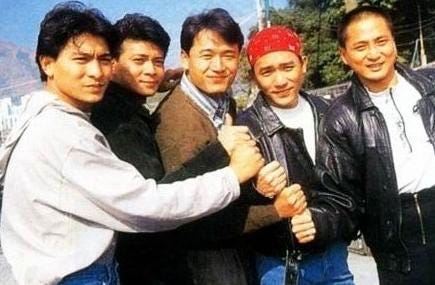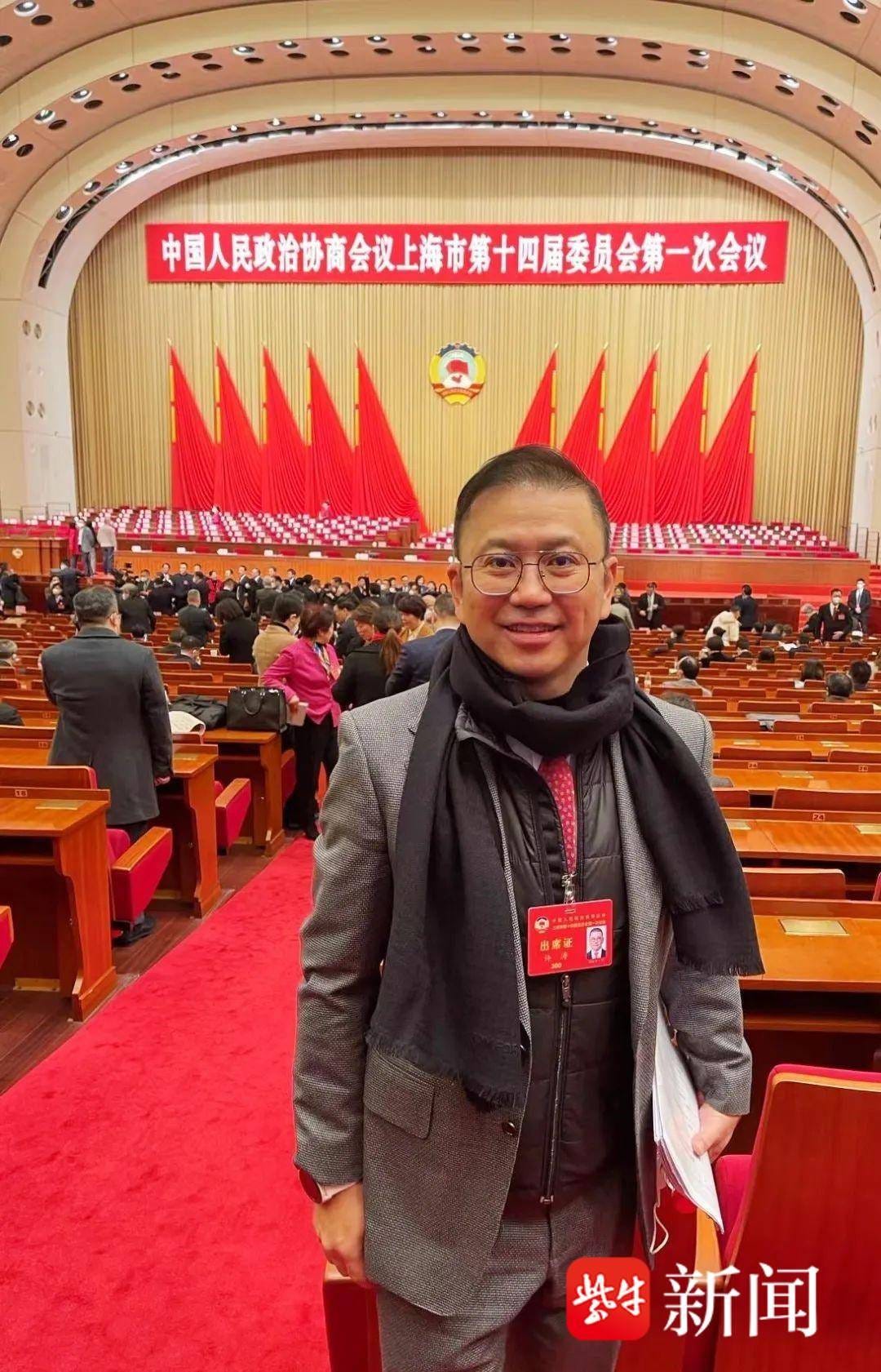Media in Focus: The Dramatic Decline of TVB
Once a cultural icon around Asia and the global Chinese diaspora, Hong Kong’s TVB is known to many today as “CCTVB” — a shadow of PRC state broadcaster CCTV, and its former self.
Long before there were K-dramas, there was TVB. Television Broadcasts Limited, Hong Kong’s oldest commercial broadcaster, wasn’t just a local sensation — audiences throughout Asia and all throughout the global Chinese diaspora were glued to their dramas. In the “golden decade” of Hong Kong pop culture in the 1980s — when a small British colony became the continent’s biggest cultural exporter — “TVB” was as synonymous with local soft power as the name of any Cantopop superstar.
But good times never last. Looking at the TVB of 2024, those golden years can sound like the stuff of lore. TVB, today, is the city’s least-trusted source of news on TV. So much of the public has turned against the station that consumer boycotts nearly brought it to its knees, prompting official intervention that condemned boycotts as a dangerous form of anti-government resistance. Even its once-beloved dramas have become the butts of jokes. Faced with financial losses year-on-year and bubbling hostility at home, it is now feverishly trying to find a viewership in mainland China. Fifty-seven years since its birth, its future has never looked so uncertain.
Local Legends
The dramatic rise and fall of TVB begins in 1967, when it was founded by Asia’s premier movie mogul, Sir Run Run Shaw (邵逸夫). His bid had won a government franchise for the city’s first free-to-air channel. For this reason, it is still known simply in Cantonese as “Wireless Television” (無綫電視).

Success came early to the young station. One of its first programs, the Saturday Night Live-style variety show Enjoy Yourself Tonight (歡樂今宵), would go on to enjoy a 27-year run, making it one of the longest-running shows in TV history. Throughout the 1980s and 1990s, it produced hit after hit, with adaptations of literary classics like Journey to the West and the Wuxia novels of Louis Cha as well as original serials. Stars propelled into the limelight by TVB at this time, like Chow Yun-fat (周潤發), Tony Leung (梁朝偉), and Andy Lau (劉德華), are still some of the biggest names in entertainment in the Chinese-speaking world.

Throughout these years, TVB remained a family affair among the Shaws — a state of affairs that changed drastically in 2011.
That year, Young Lions Holdings, an investment consortium controlled by Providence Equity Partners, Taiwan’s richest woman Cher Wang (王雪紅), and Hong Kong businessman Dr. Charles Chan Kwok Keung (陳國強) acquired the Shaw Brothers’ 26 percent share in the broadcaster. The next big shakeup came four years later. In 2015, an up-and-coming media mogul named Li Ruigang (黎瑞刚) became an upstream shareholder of Young Lion — now renamed Shaw Brothers Limited — and Providence Equity Partners ceased to be a member of the group the following year. The former president of the state-owned Shanghai Media Group, Li was at the time the chair of the relatively young private equity firm China Media Capital (CMC), which today is a major player in the Chinese and global media space — investing in film, entertainment, and telecommunications. Li Ruigang remains TVB’s largest shareholder today.
Li’s CMC also has significant relationships with state entities and mainland firms like Tencent and Alibaba. As Li arrived on the scene, Cher Wang, the daughter of a Formosa Plastics founder and chair of China-based mobile manufacturer HTC, had already walked away, taking TVB’s Taiwanese arm TVBS with her.
What Li acquired was a broadcaster so infamous for its pro-government, pro-Beijing bias that it was already known among locals as “CCTVB.”
As the TVB shakeup first began back in 2011, Li was appointed as Deputy Secretary-General of the Shanghai Party Committee and Director of the city’s Municipal Party General Office. The ascendence of this former top propaganda official might look like the place to draw a clear line for when TVB began to lose its credibility as a news source — but in reality, the rot had set in years earlier. What Li had acquired was a controlling stake in a broadcaster so infamous for its pro-government, pro-Beijing bias that it was already known among locals as “CCTVB,” likening its local role to that of PRC state broadcaster CCTV.
Becoming CCTVB
During the pro-democracy Umbrella Movement protests a year earlier, TVB’s coverage of these historic events had an unmistakable slant. Even when TVB reporters on the ground contributed valuable reporting that set the news agenda, management scrambled to minimize or quash their work. The most infamous example of this was the “dark corner” (暗角) incident in mid-October 2014, when seven police officers were filmed carrying a hog-tied protester behind a building and taking turns to punch, kick, and stomp on him. The whole thing was captured by TVB reporters.
Whereas other outlets might dream of a scoop like this that sets public opinion ablaze and becomes the centerpiece of a landmark legal case, TVB was eager to put out the fire. A voiceover describing the incident as a beating was removed from broadcasts following station controller Keith Yuen Chi Wai’s (袁志偉) direct intervention. A leaked voice recording from an editorial meeting had Yuen arguing that what reporters saw and recorded was not a beating at all.
About 80 TVB journalists and news anchors, including news editor Chris Wong, submitted a petition to management protesting Yuen's actions. Wong was later dismissed and other journalists had their bonuses docked. The editor who first broadcast the video was demoted. Following the self-censorship incident, TVB also saw an exodus of staff. Since then, TVB seems to have become more selective in its hiring. Current staff include an anchor and sub-editor from Russian state news agency Sputnik and a senior sub-editor from the state-run Ta Kung Wen Wei Media Group. The risks of another walkout over self-censorship are low.
As the public watched TVB’s coverage become increasingly politicized, and as the broadcaster cracked down on dissent within their ranks, trust in TVB content slipped. At the time of Hong Kong’s handover in 1997, TVB was the territory’s second-most trusted electronic media outlet, just behind public broadcaster RTHK. Its average score on the Chinese University of Hong Kong’s media credibility survey began to fall in 2009, but it was the station’s coverage of the 2014 Umbrella protests that saw its reputation nose-dive among members of the public surveyed by CUHK’s public opinion study center. While press credibility in Hong Kong had broadly dipped over the decades since the handover, no other outlet has seen a fall as precipitous as TVB’s.
At the same time, complaints filed by ordinary Hongkongers against TVB were hitting new highs, spiking in pivotal years when TVB’s political skew was especially acute. Complaints against TVB received by Hong Kong’s Communications Authority reached a crescendo in 2019-20, topping out at nearly 21,000. Despite the politically charged atmosphere at the time, no other broadcaster received a comparable amount of complaints. The outlet with the second-most, Commercial Radio Hong Kong, was the subject of just 766. RTHK, which pro-establishment voices slammed for being too sympathetic to protesters, and which became the target of a government crackdown thereafter, received just 91 complaints in total.
Hong Kong Changes the Channel
And as the public’s trust in TVB was drying up, so were the company’s profits. Since its inception, the station has benefited from anti-competitive advantages bestowed by authorities. When it launched, it was one of just two free-to-air television stations serving a rapidly growing local population. It would go on to enjoy this duopoly for decades, the city’s TV channels failing to keep pace with Hong Kong’s rapid development in so many other areas. When their erstwhile rival Asia Television (ATV) went under in 2015, this duopoly effectively became a monopoly until the launch of newcomer ViuTV.
In 2013, the government made the highly unpopular decision to reject up-and-coming rival HKTV’s bid for a free-to-air TV license, resulting in mass protests. HKTV successfully launched a judicial review of the decision, with the High Court ruling in their favor two years later. But after fighting an eight-year series of legal battles against the government, HKTV finally withdrew its application for a free-to-air license and surrendered its mobile TV licenses to the Communications Authority in 2018. In a war of legal attrition, the government — and TVB — had won.

Yet despite being dealt this enviable hand in the local market, TVB is somehow still losing viewers and hemorrhaging money. In their latest annual report for 2023, the broadcaster was a jaw-dropping HK$838,169,000 in the red — their sixth consecutive year of deepening losses.
Covid-19 doubtless put a dent in their earnings. But the trend preceded the pandemic and has now outlasted it. TVB itself has placed the blame for its dismal finances at the feet of pro-democracy citizens unhappy with the station’s pro-government bias. The broadcasting giant has accused its critics of “cyberbullying” and driving advertisers away with threats to boycott their products or brands. From 2019 to 2020, TVB’s advertising revenue plummeted by 54 percent. In 2021, they even filed a police report over netizens “inciting” others online — using language from the recently imposed national security law decimating media and civil society — to boycott the broadcaster and its advertisers and artists. That same year, two men were arrested over online calls to boycott TVB.
To a certain extent, these tactics have paid off. Hong Kong authorities have since labeled consumer boycotts a form of “soft resistance” — a term, as we have noted in the CMP Dictionary, that has become the favored catchall for any behavior SAR authorities wish to stamp out. But even a stranglehold on local TV and the backing of an increasingly authoritarian local government have not helped salvage TVB’s business.
The situation has only pushed TVB further into the arms of the government and mainland business interests. In their latest annual reports, TVB cites government advertising as one of their “major advertising categories,” and notes that it saw growth. The network has also become increasingly reliant on growth prospects in the mainland market, principally through OTT streaming — meaning video or audio content played over the internet — and e-commerce.
The Nouveau Régime
The latest big shakeup to TVB’s governing structure occurred amidst all these woes. In 2020, chairman Charles Chan resigned and sold his shareholding interests in Young Lion, the holding firm that first took over the Shaw family stake in TVB. These went to Kenneth Hsu, a relative unknown in both media and business who was trained as an engineer and previously served as an official with the Singaporean government and the chairman of Hong Kong’s professional registration board for engineers. Hsu and Li Ruigang of China Media Capital are now the firm’s biggest shareholders, responsible for picking its board of directors. TVB’s Nomination Committee, which makes recommendations for the board, consists of directors Felix Fong Wo (方和), Thomas Hui To (許濤), Anthony Lee Hsien Pin (利憲彬), William Lo Wing Yan (盧永仁), and Allan Zeman.
Who are these committee members? Looking at their backgrounds, it’s their political connections that stand out more than their media experience or business acumen.
As stated previously, Li is a former top propaganda official for the PRC, having served as President of the state-run Shanghai Media Group from 2002 to 2011. In 2011 he was appointed Deputy Secretary-General of the Shanghai Communist Party Committee and Director of the Municipal Party General Office. Allan Zeman, a naturalized Canadian businessman known as the “father” of the nightlife district Lan Kwai Fong, is a member of the pro-Beijing New People’s Party. He also sits on various government committees including the Chief Executive’s Council of Advisers and frequently supports the government with media commentaries and publicity blitzes. Thomas Hui, a Cornell University graduate who did a stint as an investment banker, including at Merrill Lynch, is also a representative to the Shanghai Municipal Committee of the CPPCC, meaning that he has close involvement at the leadership level in the municipality.

Felix Fong is a member of the Guangdong Provincial Committee of the CPPCC, a director of the China Overseas Friendship Association — an organization associated with the Chinese Communist Party’s United Front Work Department — and a founding member of the Democratic Alliance for the Betterment of Hong Kong, the city’s biggest pro-Beijing political party. Fong is also a former member of the Hong Kong Communications Authority and a member of the Election Committee that appoints the territory’s Chief Executive. All of these positions suggest that Fong is not only amenable to the Hong Kong government and the Chinese Communist Party but also an active and senior member of these elite political circles.
William Lo is an advisor to Our Hong Kong Foundation, a pro-establishment think tank established by former Chief Executive Tung Chee-wah that boasts of being “fully recognized and supported by the Central Government, the Hong Kong SAR Government.” He was also a Committee Member of Shantou People’s Political Consultative Conference and — like Zeman and Fong — was appointed a Justice of the Peace by the HKSAR government.
Five of TVB’s seven board members have demonstrated political affiliations — all of them tightly allied with the HKSAR government and the CCP.
Five out of TVB’s seven board members, in other words, have demonstrated political affiliations — all of them tightly allied with the HKSAR government and the CCP. Added to cases of TVB's alignment in its content with state agendas in the past, these strong connections to government interests in China and in Hong Kong raise obvious questions about the network's real distance from the state. Is the moniker CCTVB deserved?"
The Drama Continues
Whether or not one thinks TVB deserved the moniker “CCTV,” there are some striking similarities between how the two broadcasters report. Watch any daily news bulletin on TVB today and you will find some familiar formulas. Typically, only pro-government voices are afforded soundbites on air. In their half-hour special on this year’s Third Plenum for example, TVB interviewed pro-Beijing figures like CPPCC delegate Tam Yiu-chung (譚耀宗), who is credited as an academic while his various political affiliations with pro-Beijing political parties and senior roles in the PRC government are not addressed. Content that can be fairly regarded as propaganda, like a recent series extolling Xi Jinping’s poverty alleviation efforts — a top agenda in PRC state media — is often disguised as feature content and a central part of daily programming.
The station’s monopolistic tendencies were highlighted again earlier this year in relation to the 2024 Miss Hong Kong beauty pageant, run by TVB for decades as a means to cultivate new young starlets. Several top contestants withdrew from the competition to avoid signing onerous contracts with TVB that would have narrowed their career options. In November, the broadcaster canceled a documentary series on global conflicts after accusations that it sympathized too much with Ukraine and failed to adequately present Russia’s motivations for invading the country in 2022.
While TVB is consistently pro-Beijing and government-friendly, there are occasional sparks of potential resistance — or, at least, professionalism— from the newsroom. As Hong Kong prepared to introduce new, local national security legislation known as Article 23 earlier this year, TVB ran a series of vox pops in which all interviewees avoided the reporter’s questions or openly said they were too scared to publicly express opposition to the law. The implication did not need spelling out. For some, TVB may qualify as state media. But as we have repeatedly spotlighted at the China Media Project and Lingua Sinica, state media are never so simple, and can at times be sources of important reporting or professional pushback.
From a worldwide cultural phenomenon to a much-maligned and little-watched local outlet, TVB’s decline has been dramatic. As for the next plot twist in the ongoing teledrama of TVB — viewers will just have to stay tuned.







